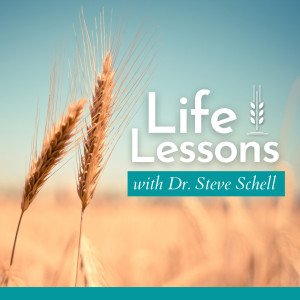
- Podcast Features
-
Monetization
-
Ads Marketplace
Join Ads Marketplace to earn through podcast sponsorships.
-
PodAds
Manage your ads with dynamic ad insertion capability.
-
Apple Podcasts Subscriptions Integration
Monetize with Apple Podcasts Subscriptions via Podbean.
-
Live Streaming
Earn rewards and recurring income from Fan Club membership.
-
Ads Marketplace
- Podbean App
-
Help and Support
-
Help Center
Get the answers and support you need.
-
Podbean Academy
Resources and guides to launch, grow, and monetize podcast.
-
Podbean Blog
Stay updated with the latest podcasting tips and trends.
-
What’s New
Check out our newest and recently released features!
-
Podcasting Smarter
Podcast interviews, best practices, and helpful tips.
-
Help Center
-
Popular Topics
-
How to Start a Podcast
The step-by-step guide to start your own podcast.
-
How to Start a Live Podcast
Create the best live podcast and engage your audience.
-
How to Monetize a Podcast
Tips on making the decision to monetize your podcast.
-
How to Promote Your Podcast
The best ways to get more eyes and ears on your podcast.
-
Podcast Advertising 101
Everything you need to know about podcast advertising.
-
Mobile Podcast Recording Guide
The ultimate guide to recording a podcast on your phone.
-
How to Use Group Recording
Steps to set up and use group recording in the Podbean app.
-
How to Start a Podcast
-
Podcasting
- Podcast Features
-
Monetization
-
Ads Marketplace
Join Ads Marketplace to earn through podcast sponsorships.
-
PodAds
Manage your ads with dynamic ad insertion capability.
-
Apple Podcasts Subscriptions Integration
Monetize with Apple Podcasts Subscriptions via Podbean.
-
Live Streaming
Earn rewards and recurring income from Fan Club membership.
-
Ads Marketplace
- Podbean App
- Advertisers
- Enterprise
- Pricing
-
Resources
-
Help and Support
-
Help Center
Get the answers and support you need.
-
Podbean Academy
Resources and guides to launch, grow, and monetize podcast.
-
Podbean Blog
Stay updated with the latest podcasting tips and trends.
-
What’s New
Check out our newest and recently released features!
-
Podcasting Smarter
Podcast interviews, best practices, and helpful tips.
-
Help Center
-
Popular Topics
-
How to Start a Podcast
The step-by-step guide to start your own podcast.
-
How to Start a Live Podcast
Create the best live podcast and engage your audience.
-
How to Monetize a Podcast
Tips on making the decision to monetize your podcast.
-
How to Promote Your Podcast
The best ways to get more eyes and ears on your podcast.
-
Podcast Advertising 101
Everything you need to know about podcast advertising.
-
Mobile Podcast Recording Guide
The ultimate guide to recording a podcast on your phone.
-
How to Use Group Recording
Steps to set up and use group recording in the Podbean app.
-
How to Start a Podcast
-
Help and Support
- Discover

Life Lessons with Dr. Steve Schell
Religion & Spirituality:Christianity

I think we all ask the question. Our need to ask is automatic; it's instinctive; it comes uninvited. When serious illness strikes, or when we or those close to us are hit by tragedy, particularly if something happens to a child, we ask: “God, what did I do wrong? Why did You let this happen?” We assume it happened because someone sinned. Even those of us who feel very confident that God is a loving God are likely to struggle with guilt when a crisis comes to us or our immediate family. Everything inside us asks: “Why? Did I do something? Did I say something? Do I lack faith?” And then our minds go searching for an answer, and the pressure inside is so great, sooner or later we always come up with one and believe it deeply, whether or not there is any truth in it. This process of seeking to place blame on ourselves or others is the source of much human misery. Many of us can carry a burden of shame or hatred for the rest of our lives.
But we aren't the only ones who ask the question “Why?” when we experience a tragedy. Others watch us in fear and ask the same question. They too want to know who to blame so that they can avoid doing whatever it was that brought that suffering into our family. They don't want it to arrive at their door. So their minds try to solve the puzzle as well, and they too, just like you and I come up with wrong answers. One would hope that the religious community would be immune from this process, but it is not. In fact religious answers to the terrible question “Why?” can be the cruelest of all.
This is the situation Jesus passed by on His way out of the temple. He saw a beggar who had been born blind; He saw a man with a disability so sad that everyone was determined to find out who was to blame for it. And that day He taught us to stop trying to answer that question.
More Episodes
 2026-02-26
2026-02-26
 94
94
 2026-02-23
2026-02-23
 143
143
 2026-02-21
2026-02-21
 193
193
 2026-02-19
2026-02-19
 149
149
 2026-02-16
2026-02-16
 173
173
 2026-02-12
2026-02-12
 168
168
 2026-02-05
2026-02-05
 191
191
 2026-02-02
2026-02-02
 176
176
 2026-01-29
2026-01-29
 173
173
 2026-01-26
2026-01-26
 175
175
 2026-01-22
2026-01-22
 186
186
 2026-01-19
2026-01-19
 160
160
 2026-01-15
2026-01-15
 172
172
 2026-01-12
2026-01-12
 191
191
 2026-01-05
2026-01-05
 207
207
 2026-01-01
2026-01-01
 212
212
 2025-12-29
2025-12-29
 178
178
 2025-12-25
2025-12-25
 190
190
 2025-12-22
2025-12-22
 190
190
 2025-12-18
2025-12-18
 204
204
Create your
podcast in
minutes
- Full-featured podcast site
- Unlimited storage and bandwidth
- Comprehensive podcast stats
- Distribute to Apple Podcasts, Spotify, and more
- Make money with your podcast
It is Free
- Privacy Policy
- Cookie Policy
- Terms of Use
- Consent Preferences
- Copyright © 2015-2026 Podbean.com



